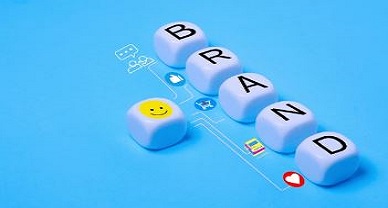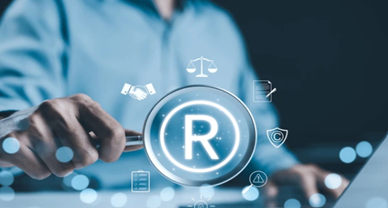Evolution of Personality Rights in India
Recently, Bollywood Director Karan Johar[1] filed a case against the makers of “Shaadi Ke Director Karan Aur Johar” for using his name in the title of their movie without permission, this lawsuit has sparked again the debate relating to personality rights in India. The case filed in the Bombay High Court strikes a balance and highlights the difference between individual monetary interests and personal interests. This case opens up a discussion on whether these personality rights should be incorporated into the Indian legal system, with the ever-increasing celebrity person’s face value and clout.
Personality Rights:
Every individual has the right and ownership over the use of the information related to their identity, and this right even increases when the use is commercial. An individual’s name, image, distinctive characteristics, etc. are all part of their personality rights, which are protected under intellectual property rights. These rights derive their power from the idea of privacy as enumerated and protected by Article 21 of the Indian Constitution and are accordingly preserved under IPR laws in India.
Using these personality rights becomes very vulnerable when associated with a celebrity’s identity, as it can cause grave reputational and monetary losses. Generally, in the case of celebrities, due to their high popularity and face value, they are subjected to many misleading and illegal commercials which affect their reputation in the public at large, and which might in turn lead to serious consequences for them.
The recent controversy of Karan Johar’s case also highlights the same problem, in this case, Karan Johar filed a case against the producers and makers of the movie “Shaadi Ke Director Karan Aur Johar.” asking the court to grant a permanent injunction to not use his name with anything related to the movie and not release the movie. He stated that his name is being illegally used in the movie affecting his personality rights and right to privacy, he further states that due to his widespread popularity and fame, his name is being used, just so that the movie could get some clout, compromising his brand value and goodwill.
Evolution of Personality Rights in the United States and the United Kingdom:
The evolution of personality rights has been different in different jurisdictions. The idea first came into existence as an altogether separate legal doctrine in the United States, where people had the right to manage how their identities could be used for monetary purposes. In the Landmark judgment of Haelan Laboratories, Inc. v. Topps Chewing Gum Inc.[2], which proved to be a fundamental precedent concerning personality rights, it was stated in the United States courts that people have the right over the public value of their photos, independent of their right to privacy.
Personality Rights have been recognized in the United Kingdom only recently. Earlier, particularly in defamation cases, the English law gave lesser significance to the idea of privacy to defend reputation. The change was first noticed in the case of Douglas v. Hello! Ltd, where the idea of protecting people’s privacy from media tactics was first discussed. After that, The European Convention on Human Rights was incorporated into the UK legislation, which upheld the Idea of protection of private and family life and enforced privacy rights under UK law.
Jurisprudence in India:
The evolution of personality rights in India can be traced with the expansion of the entertainment sector. The Supreme Court in the case of R. Rajagopal v. State of Tamil Nadu[3], popularly known as the Auto Shankar case, recognized an individual right to manage the use of his identity for commercial purposes. The case highlighted the shift, where celebrities were given the right to preserve their identity against commercial exploitation.

The court highlighted that there is a need to strike a balance between the freedom of the press and an individual’s privacy right. It stated that on one hand, press freedom comes under freedom of speech and expression subject to the reasonable limitations outlined in Article 19(2). While on the other it is the privacy rights of individuals enumerated under Article 21. According to the court, everyone should have the “right to be let alone” concerning their personal information, and it is necessary to respect someone’s private life.
The topic of personality rights in India was further discussed in the cases of Titan Industries Ltd. v. Ramkumar Jewellers[4] and ICC Development (International) Ltd. v. Arvee Enterprises[5]. The right to publicity is derived from the right to privacy and is distinctive to individual people, according to a consistent ruling by the courts. In the case of Anil Kapoor v. Simply Life India & Ors[6]. case, the Delhi High Court made the definition of personality rights wider to include a person’s name, image, voice, and traits, among other characteristics of their identity.
In the case of Shivaji Rao Gaikwad v. Varsha Productions[7]. (Rajnikanth Case), the Madras High Court stated that when a person achieves or gets to the status of a celebrity, he/she is entitled to certain special rights to preserve and protect his identity. The court emphasized the fact that if a celebrity is distinctively identifiable, the proof of falsity, confusion, or deceit is not necessary in infringement cases, thus further reaffirming celebrities’ personality rights against unauthorized commercial use.
The case of Anil Kapoor discussed above is also an important precedent, highlighting wider implications of personality rights under the Indian Law. The court stated that reputation and fame are an important part of human life that clashes or transcend into various rights of an individual. The right to freedom of speech is also important, but only as long as it does not tarnish or affect the dignity or personality of other individuals. The court emphasized a celebrity’s name, likeness, image, voice, etc. to be protected to avoid exploitation.
Personality Rights Under Intellectual Property Laws
Indian Intellectual Property Laws do not directly or explicitly recognize personality rights, but several regulations and provisions address the same. The Copyright Act of 1957 gives rights to performers and creators to preserve their original works, Section 57 of the Indian Copyright Act[8], ensures that special rights are given to authors including personal rights, Section 38 gives the complete ownership of a performance to a performer, including its reproduction rights. Other important provisions include Sections 17, 39, and 52 of the Copyright Act.
The Indian Trade Marks Act, of 1999, on the other hand, in its section 2(m) includes “names” under the definition of “trademark”, there have been numerous celebrities in India, like Baba Ramdev and Kajol have trademarked their names to avoid avoid commercial exploitation. Section 14[9], talks about the use of name or likeness of a living or deceased person. The provision explicitly denies any association with any deceased person, who has died within 20 years, to preserve their personality rights. The exception of the provision is given under section 35.
In the judgment of Arun Jaitley vs Network Solutions Private Limited and Ors Case (2011)[10] the Delhi High Court observed that the celebrities famous on the Internet are no different from actual celebrities. Their reputation is also important as they have also acquired their own distinctive features.
Judicial Recognition and the Need for Legal Reforms
After the cases discussed above it is quite safe to say that the Indian judiciary over the period has increasingly recognized the need to protect people’s personality rights. The recent case of Amitabh Bachchan v. Rajat Nagi & Ors[11]. is also evidence of this fact. In this case, the Delhi High Court, prohibited the use of Amitabh Bachchan’s name, voice, and other characteristics issuing an interim injunction in his favor.
This case particularly highlights the malpractice of companies where they misuse the identity of famous people, exploit them, and earn profits for their businesses. The judgment is important as it not only protects the privacy rights of individuals but also makes a way for the development of personality rights in India.
Conclusion
There is no denying the fact that there has been a growing importance of personality rights in the Indian legal system. With the ever-expanding entertainment industry, we can only expect these rights to be developed more and more. However, the prevalent Intellectual property Laws protect these rights indirectly, the need of the hour is to introduce specific legislation concerning these personality rights, so that financial interests and privacy of public figures can be balanced. Inspiration should be taken from various International Legal developm ents happening in this regard so that a robust and evolved personality rights protection mechanism could be incorporated into the Indian Legal system.
The recent cases of Karan Johar and Amitabh Bachchan are apt examples that celebrities now are becoming more and more aware of their rights and preserving their rights from commercial exploitation. The judiciary in this evolving landscape is also uplifting their rights and safeguarding their identities. It is also pertinent to note that the protection of personality rights cannot be done by IPR laws alone, it is a wide subject area for which comprehensive legislation is needed.
Author:– Abdul Ahad, in case of any queries please contact/write back to us at support@ipandlegalfilings.com or IP & Legal Filing.
References:
Shrivastava, Amisha. “Karan Johar Moves Bombay High Court Over Alleged Unauthorized Use Of His Name In Film “Shaadi Ke Director Karan Aur Johar.”” Livelaw, 12 June 2024, https://www.livelaw.in/high-court/bombay-high-court/bombay-high-court-karan-johar-shaadi-ke-director-karan-aur-johar-260356.
NT, Sarasvati. “Karan Johar Seeks Injunction Against Film Using His Name.” MediaNama, 13 June 2024, https://www.medianama.com/2024/06/223-karan-johar-infringement-personality-rights-over-film-title/.
Chandra, Veena, and Kriti Sood. “Personality Rights: Protection under IP laws.” Lakshmikumaran & Sridharan, 15 February 2024, https://www.lakshmisri.com/insights/articles/personality-rights-protection-under-ip-laws/.
Kapoor, Vanshika. “All you need to know about personality rights in India.” iPleaders, 6 September 2023, https://blog.ipleaders.in/all-you-need-to-know-about-personality-rights-in-india/.
Bagri, Nandini. “Protection of Personality Rights in India : IP.” IP and Legal Filings, 19 April 2023, https://www.ipandlegalfilings.com/personality-rights-in-india-a-statutory-and-judicial-analysis/
[1] Shrivastava, Amisha. “Karan Johar Moves Bombay High Court Over Alleged Unauthorized Use Of His Name In Film “Shaadi Ke Director Karan Aur Johar.”” Livelaw, 12 June 2024, https://www.livelaw.in/high-court/bombay-high-court/bombay-high-court-karan-johar-shaadi-ke-director-karan-aur-johar-260356.
[2] Haelan Laboratories, Inc. v. Topps Chewing Gum, Inc., 202 F.2d 866, 868 (CA2 1953).
[3] R. Rajagopal v. State of T.N., (1994) 6 SCC 632
[4] Titan Industries Ltd. v. Ramkumar Jewellers, 2012 SCC OnLine Del 2382.
[5] ICC Development (International) Ltd. v. Arvee Enterprises, 2003 SCC OnLine Del 2
[6] Anil Kapoor vs simply life & Ors Manu/Deor/248558/2023
[7] Shivaji Rao Gaikwad v. Varsha Productions, 2015 SCC OnLine Mad 158
[8] Section 57, The Copyright Act, 1957.
[9] Section 14, The Trademarks Act, 1999.
[10] Mr. Arun Jaitley v. Network Solutions Private Limited. & Ors., 2011 SCC Online Del 2660
[11] Amitabh Bachchan v. Rajat Nagi & Ors 2022 SCC OnLine Del 4110.


